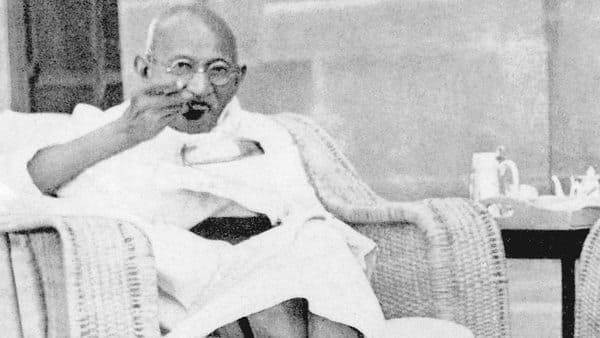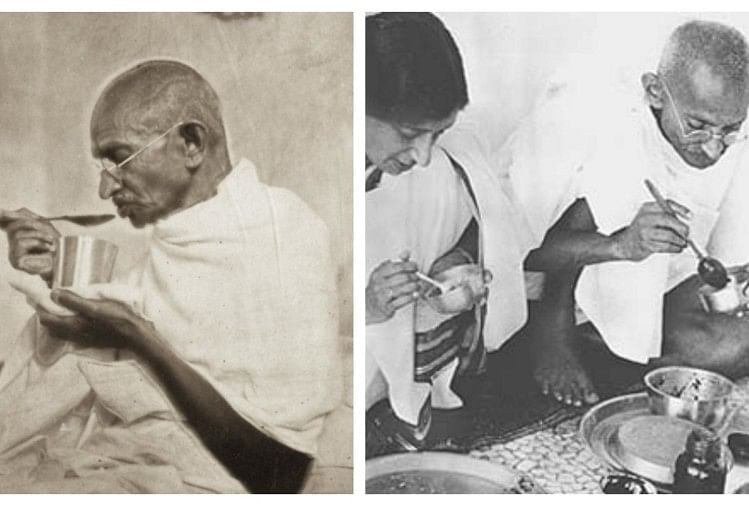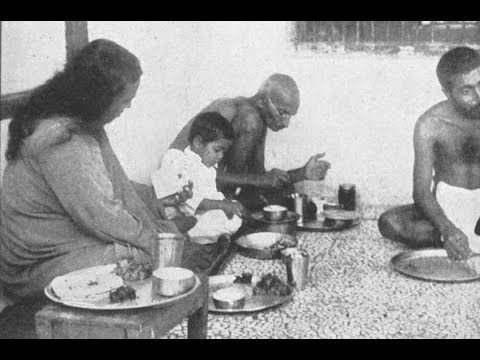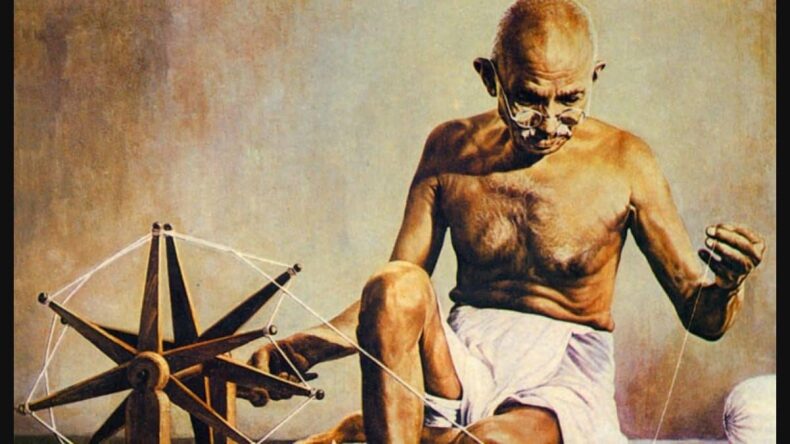विषया विनिवर्तन्ते निराहारस्य देहिनः।
रसवर्ज रसोऽप्यस्य परं दृष्ट्वा निवर्तते ॥
Meaning: The sense objects turn away from an abstemious soul, leaving the relish behind. The sauce also disappears with the realization of the Highest.
Time and again, we remember, rekindle, and revere the father of the Nation, aka the Mahatma. The Story of Gandhiji is his story of experiments with the ultimate truth.
People across nations have witnessed and cherished his saintliness and learned from his non-materialistic and abstinent life.

But, how many of us are aware of his experiments with health? Or his obsession with bowel movement and the use of enemas? Gandhiji was extraordinarily invested (psychologically) in what he ate and its consequences on his body.
The Last Fast of Gandhiji:
When Gandhiji went on a fast against the Raj in 1943, it was allegedly declared his last fast. Time magazine reported on the 73-year-old man’s 21-day fast.
“A panel of nine doctors announced that Gandhi’s ‘uremic condition deepens and if his fast is not ended without delay it may be too late to save his life’.
He was too far gone for blood transfusions or glucose injections to be of help. Government bulletins prepared Indians for news of his death. Only a body and a will that has survived a lifetime of fasts and jailing’s kept Gandhi alive.”
Gandhiji believed in the use of personal restraint to achieve his just ends. He thought not in the torture of others for the sake of the fulfilment of one’s right; instead, he advised punishing one’s self for realizing our dreams.
He widely experimented with non-violent protests and thus went on ‘purification fast’ 17 times in his life. The extraordinary quality of self-composure and restraint led Gandhiji to lead the world’s first successful non-violent national movement again colonial rule.

The Man we know, the experiments we don’t:
“One should eat not in order to please the palate, but to keep the body going”, quoted Gandhi.
Mahatma Gandhi once began to believe that he could survive merely on fruits and nuts and thus, planned a diet of a dozen or two oranges for himself daily.
But the doctor advised him otherwise, that he needed to have 50-75 oranges a day if such fruits are his sole source of nutrition. The expert cautioned him that this routine would ultimately lead to diarrhoea and health issues.
On this advice, Gandhiji decided to take rice and chapati but refused to take even a single drop of milk as he believed that after a child is born, only the milk he consumes from his mother’s feeding is what he needs.
Every other form of consumption of milk is unnecessary. At a point in his life, he also gave up the practice of eating breakfast after he read a book advising Englishmen to eat less as they consume much more than what is required.
Gandhiji was also obsessed with a perfect-bowel movement, and in pursuit of that, he constantly changed his diet. For days, he would survive on just a diet of lemon, honey, and bicarbonate of soda as he considered it balanced before going on a fast.

He advised even his young disciples to have a proper bowel movement and recommended using enemas to facilitate the same. He is known to use enema several times a month.
Even when he fell ill throughout his life, he solely relied on home remedies and nature’s cure as he believed that “man has little need to drug himself.”
99% of cases of weak health and diseases can be solved by a well-regulated diet, water, and earth treatment. And by consuming various kinds of drugs, a person becomes the slave of his body, rather than remaining his master.
“Let no one discount these observations because they are written in a sickbed.”
– Mahatma Gandhi on his experiments with health
Read More: 2nd October Is A Gandhi-Shastri Jayanti
Read More: On Gandhi Jayanti, UN Chief Guterres urges people to shun violence













